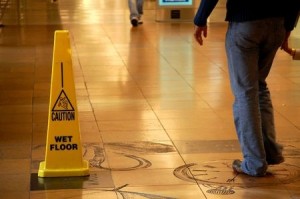 When you are injured on the property of another person or entity, you may receive compensation for your injuries. Premises liability is an essential part in personal injury law but it can be very tricky to prove who is to blame for your injury. This why you should always call a personal injury lawyer, no matter how cut and dry you think the case may be.
When you are injured on the property of another person or entity, you may receive compensation for your injuries. Premises liability is an essential part in personal injury law but it can be very tricky to prove who is to blame for your injury. This why you should always call a personal injury lawyer, no matter how cut and dry you think the case may be.
At the Law Offices of Anthony Carbone, our experienced premises liability attorney Anthony Carbone has been handling these type of cases for the past 26 years. He has spent his career fighting for the rights of his clients in the courtrooms of New Jersey.
What is Premises Liability?
Premises liability means the person who owns the property is responsible for keeping his/her property free from danger. If you get into an accident on that person’s property, he/she is responsible for the accident since he/she failed to keep the area safe.
There can be several causes for injury on a property, such as bad design or poor maintenance. But to figure out who is responsible for your injuries, the following guidelines must be met:
- The owner of the property is legally responsible to keep the property safe. Since the owner is the one who has total control over the property, then they are responsible for his/her visitor’s safety.
- The visitor must conduct themselves normally on the property. For example, instead of using the stairs, you decide to slide down the handrail. However, the handrail isn’t made to hold your weight and breaks under the pressure. You fall and break your arm. Although the owner of the property is responsible for the upkeep of the building, you are the one is responsible for the injury since you behaved inappropriately.
- The owner of the property must have been aware of the danger before your accident. For instance, if you slip on a patch of ice on a neighbor’s sidewalk that the neighbor was unaware was there, he/she may not be responsible.
- There was no warning signs present where the accident occurred. So if you slip and fall on a puddle in the middle of the grocery store, and there was no signs present, you may be entitled to compensation.
The same rules also extend to employees who are injured on an employer’s property. But remember, if you are injured on an employer’s property, this is considered a workers’ compensation claim and not a personal injury claim.
Don’t Pursue a Case on Your Own!
Premises liability can be complex and if you don’t know the law, you may lose your case. If you were injured on someone else’s property in New Jersey, contact premises liability attorney Anthony Carbone today for a free consultation.







